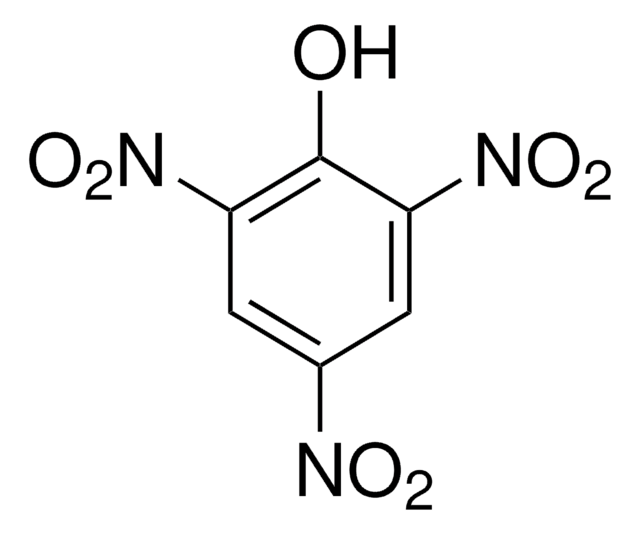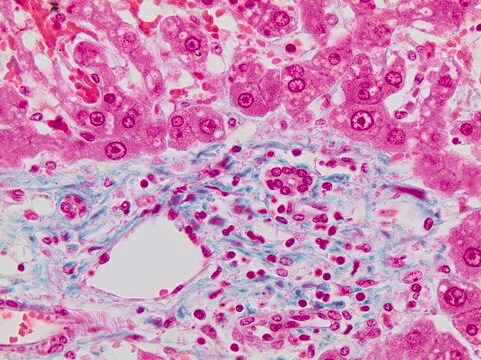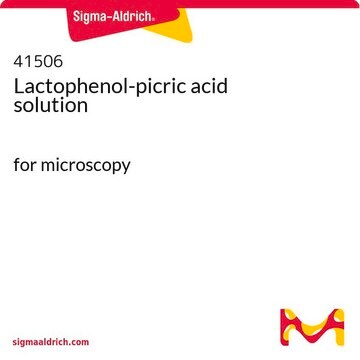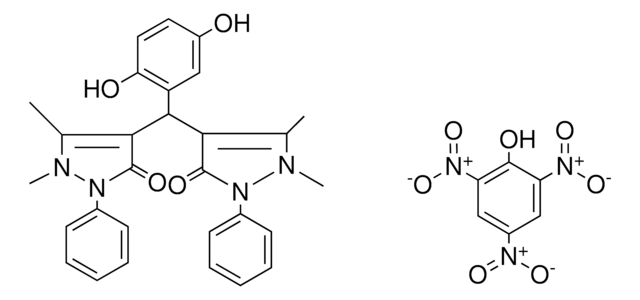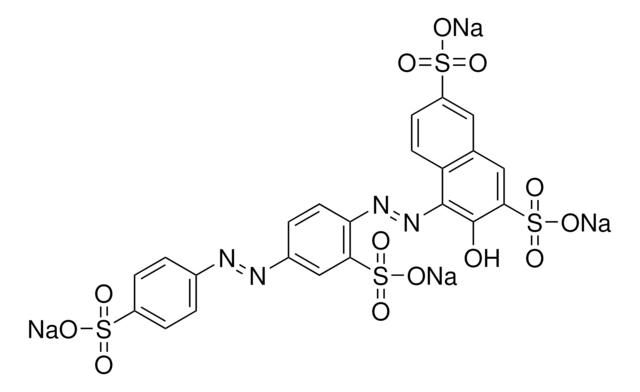P6744
Picric acid solution
1.3% in H2O (saturated)
Synonym(s):
2,4,6-Trinitrophenol
Sign Into View Organizational & Contract Pricing
All Photos(1)
About This Item
Linear Formula:
(O2N)3C6H2OH
CAS Number:
Molecular Weight:
229.10
Beilstein:
423400
MDL number:
UNSPSC Code:
12171500
PubChem Substance ID:
NACRES:
NA.47
Recommended Products
form
liquid
Quality Level
concentration
1.3% in H2O (saturated)
color
yellow to very dark yellow
density
1.080 g/cm3
application(s)
hematology
histology
storage temp.
room temp
SMILES string
Oc1c(cc(cc1[N+]([O-])=O)[N+]([O-])=O)[N+]([O-])=O
InChI
1S/C6H3N3O7/c10-6-4(8(13)14)1-3(7(11)12)2-5(6)9(15)16/h1-2,10H
InChI key
OXNIZHLAWKMVMX-UHFFFAOYSA-N
Looking for similar products? Visit Product Comparison Guide
General description
Picric acid is a polynitrated aromatic acid. It dissolves in water to form a solution with low pH (pH 2.0). It interacts with basic groups of proteins, forms salts and coagulates them. Fixation with picric acid gives a bright stain, but there might be a loss of nucleic acids due to the low pH of the solution.
Picric acid is anionic and has a low molecular weight.
Picric acid is anionic and has a low molecular weight.
Application
Picric acid is commonly used as a fixative and staining reagent in forensic and histological applications. It is a general cytoplasmic stain, connective tissue fiber stain, and a fixative for tissues.
- It is a component of picrosirius red which is used to stain collagen.
- Bouin’s fluid which also comprises picric acid is a fixative for nuclei and connective tissue.
- It can be used as a colorimetric reagent in creatinine determination assay.
Supplementary Hazards
Storage Class Code
12 - Non Combustible Liquids
WGK
WGK 1
Flash Point(F)
Not applicable
Flash Point(C)
Not applicable
Personal Protective Equipment
dust mask type N95 (US), Eyeshields, Gloves
Choose from one of the most recent versions:
Already Own This Product?
Find documentation for the products that you have recently purchased in the Document Library.
Lysyl oxidase family activity promotes resistance of pancreatic ductal adenocarcinoma to chemotherapy by limiting the intratumoral anticancer drug distribution
Benjamin Le Calve
Oncotarget (2016)
Xin Is a Marker of Skeletal Muscle Damage Severity in Myopathies
The American Journal of Pathology, 183 (2013)
Regulator of G-Protein Signaling-5 Is a Marker of Hepatic Stellate Cells and Expression Mediates Response to Liver Injury
Arya Bahrami
PLoS ONE (2014)
John D. Bancroft
Theory and Practice of Histological Techniques (2008)
Andre Picot, P. Grenouillet
Safety in the Chemistry and Biochemistry Laboratory (1994)
Our team of scientists has experience in all areas of research including Life Science, Material Science, Chemical Synthesis, Chromatography, Analytical and many others.
Contact Technical Service